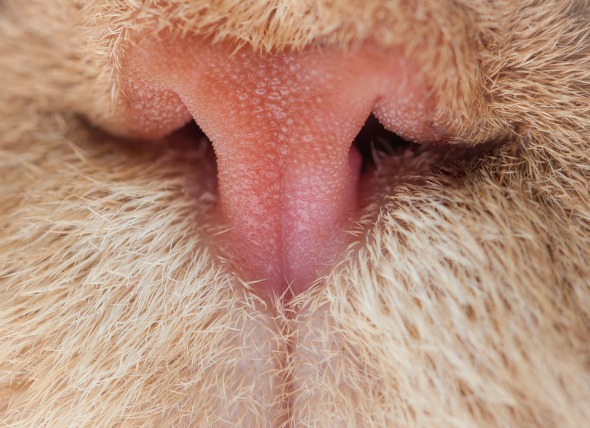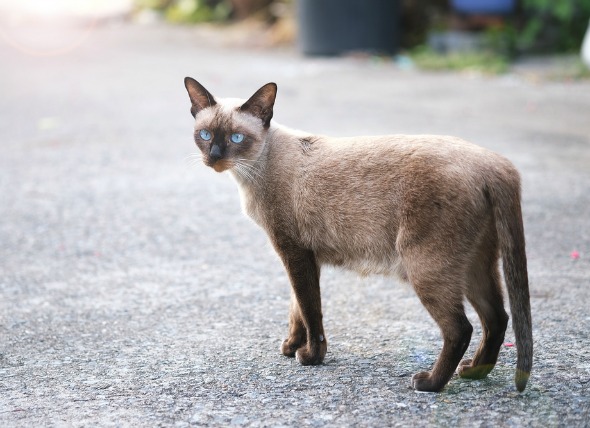Over the past several years, owners of cats have become more aware of injection-site tumors that could be linked to vaccinations. These tumors, or fibrosarcomas, can arise at any injection site, vaccine-related or otherwise. While these tumors are not extremely widespread, the treatment needs to be much more invasive than conventional tumors.
Due to their location (along the surface of the muscles and soft tissue) and their propensity to grow and spread quickly, injection-site tumors are more difficult to treat than conventional tumors. And depending on the location of the fibrosarcoma, the best course of action may unfortunately be amputation of an entire limb.
Researchers don't yet understand the reasons behind the development of injection-site tumors in cats, but since they are much more aggressive and potentially deadly than conventional tumors, developing a way to determine whether a tumor is caused by an injection is critical to determining the appropriate course of treatment.
Researching Cat Cancer Causes
The Morris Animal Foundation has funded two feline research studies as part of their Happy Healthy Cat Campaign that are looking at how injection-site tumors develop in cats. Drs. Marlene Hauck and Rachael Thomas, along with her mentor Dr. Matthew Breen, at North Carolina State University are taking different approaches, but their research studies complement each other.
For her part, Dr. Hauck is looking at gene expression in cats using microarray technology. By comparing normal tissues in the lymph nodes and muscle with those same tissues at injection-site reactions and injection-site sarcomas, they hope to understand which genes are altered when a tissue develops a tumor.
"If we can look at the same tumor, we can see which genes really are important because they are involved on a chromosomal level as well," Dr. Hauck says. "We may see multiple chromosomal abnormalities and by comparing to gene expression, we can determine what genes are involved."
"Ultimately we hope to develop additional diagnostic information that would better inform an owner of the likely clinical course of the disease and how to best treat it," Dr. Thomas says. "If there is evidence of an injection association, then the treatment could be tailored more appropriately to that individual patient."
While the researchers agree that science is some way off from translating into separate therapies, they are excited that they have made some important steps in feline health.
Until that time, cat owners should be mindful of the potential risks of vaccinations, but that doesn't mean they should stop vaccinating.
When it comes to healthy cats, vaccinations are essential. Both Drs. Hauck and Thomas point out that vaccines save more lives than they cause cancer. You should consult your veterinarian to determine the best course of action your your bet based on local laws while factoring in your pet's lifestyle and risk factors.

 Nose Pad Cancer (Squamous Cell Carcinoma) in Cats
Squamous Cell Carcinoma of the Nasal Planum in Cats
&nbs
Nose Pad Cancer (Squamous Cell Carcinoma) in Cats
Squamous Cell Carcinoma of the Nasal Planum in Cats
&nbs
 Fatty Skin Tumors in Cats
Lipoma in Cats
Lipomas are soft masses or tumors
Fatty Skin Tumors in Cats
Lipoma in Cats
Lipomas are soft masses or tumors
 Do Cats Get Lonely?
Do Cats Get Lonely?
Do Cats Get Lonely
Do Cats Get Lonely?
Do Cats Get Lonely?
Do Cats Get Lonely
 Excessive Production of Saliva in Cats
Ptyalism in Cats
Saliva is constantly produced an
Excessive Production of Saliva in Cats
Ptyalism in Cats
Saliva is constantly produced an
 Chest Bone Deformity in Cats
Pectus Excavatum in Cats
The sternum, or chest bo
Chest Bone Deformity in Cats
Pectus Excavatum in Cats
The sternum, or chest bo